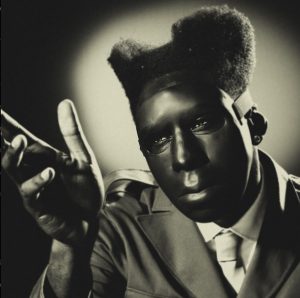Anorexia Nervosa: The Information and the Personal Struggle Behind It
December 23, 2021
Anorexia nervosa can be defined as “an eating disorder characterized by an abnormally low body weight, an intense fear of gaining weight and a distorted perception of weight” (Mayo Clinic). As someone who has dealt with anorexia nervosa for the past few years, it goes much deeper than the definition puts it out to be.
Some may be wondering how anyone could choose not to eat, but it’s so much more than just not eating. From my own personal experience, when my life felt out of control I resorted to something I could control. This was a way to gain back some sort of say in my life; and coming from someone who has a toxic home life, I didn’t exactly have much control over anything. The thing I could control the most was what I ate.
I began to limit my food intake more and more as my life became increasingly more chaotic. It started with me thinking I’ll be able to go back to eating normally when I want but the longer I got into this cycle the harder it was for me to get out of it. I personally knew that what I was doing was going to have negative effects on my health, but through the eyes of my eating disorder all that I knew before seemed to just not matter. I became angrier as time went on and I seemed to lose interest in almost everything I once loved, because I simply did not have the energy anymore.
Anorexia isn’t just not eating; it’s constantly having this voice in the back of your head that never seems to go away telling you you’re not good enough. So many people tend to blame the ones suffering from the eating disorder rather than taking a second to think how easily someone can develop an eating disorder. We live in a society where being stick thin is the beauty standard. No one wants to suffer from an eating disorder. Why would anyone want to constantly be held back from living life because of the stupid voice in the back of their head telling you not to eat and if you do you will gain weight?
So why is it that society as a whole shame those suffering? The media has glorified anorexia by portraying a thin body as a sign of beauty. But the reality is anorexia is not what the media puts it out to be. Anorexia destroys not only the relationship you have with yourself but the relationships you have with your family and friends. Anorexia is an invisible illness.
So many people across the world are suffering in silence and I was one of those people. It was not until about two years ago that I began to receive help and treatment. I still struggle to this day, but if I was not able to receive help a few years ago who knows where I would be right now. Recovery is not linear. It’s a journey, and I’m incredibly grateful I accepted the fact that I needed help because I’m in a much better place than I was in two years ago.
If you or someone you know is struggling with anorexia or any eating disorder,please let a loved one know. And if you do not have a support system in your life, please call or text (800) 931-2237 (Eating Disorders Helpline | Chat, Call, or Text | NEDA). To learn more about anorexia and eating disorders visit What Are Eating Disorders? | Learn | NEDA or https://nami.org








Shannon Clark • Jan 7, 2022 at 11:37 am
This is really brave, Anna. I guarantee your words have made some people feel less alone, which is an extremely powerful thing. I hope you are very proud of yourself for your courage to share your story and your strength to push through and recover. I am proud of you <3
Abby Fiedler • Dec 23, 2021 at 6:34 pm
Great article Anna! I admire your strength, and just know that I am always here for you!